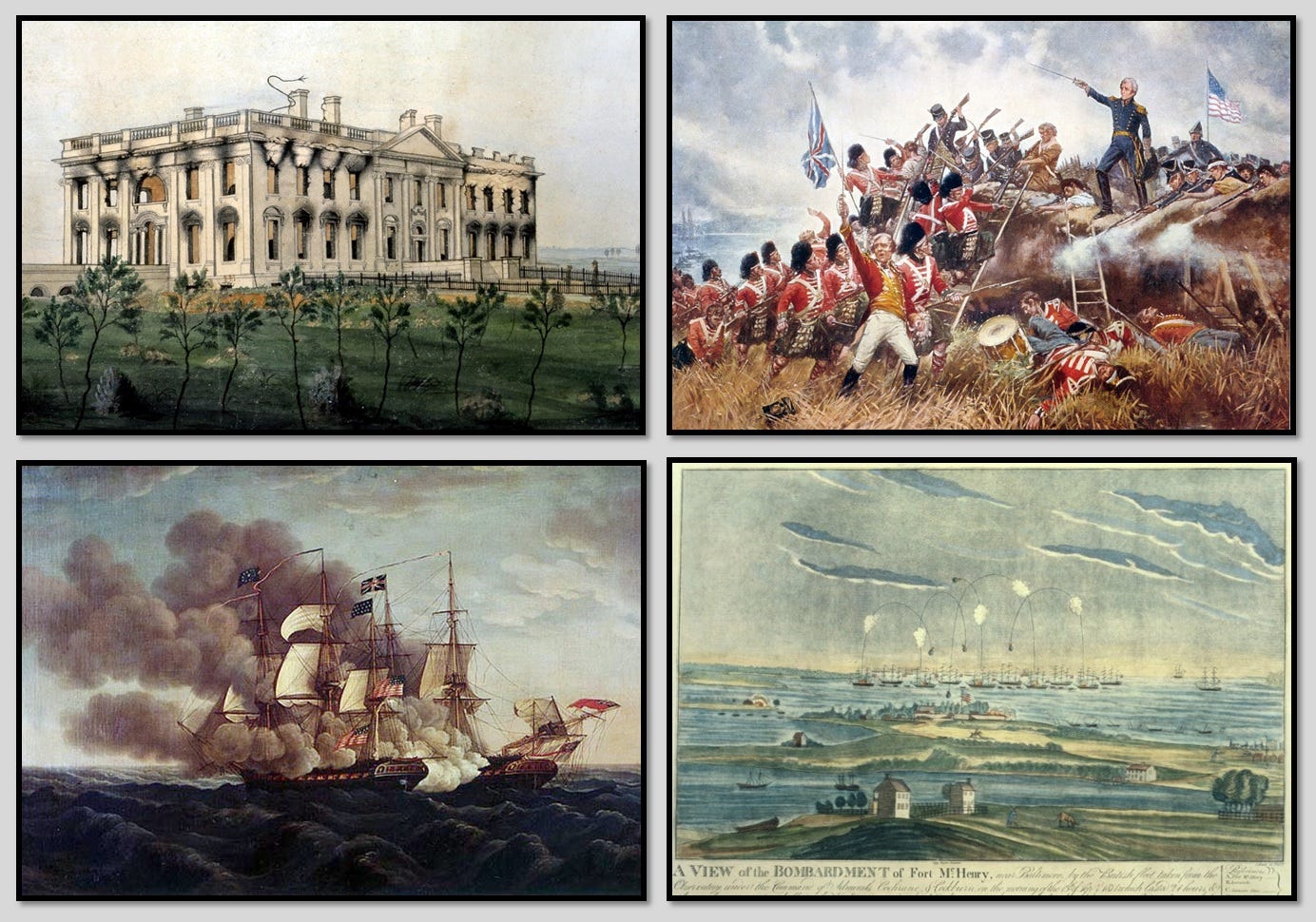TDIH: The War of 1812
Once again, a superpower like Great Britain had been unable to defeat us.
On this day in 1812, President James Madison signs a declaration of war against the United Kingdom of Great Britain and Ireland. His signature marked the official beginning of the War of 1812, a war that has been called the “forgotten” war.
Today, no one really seems to understand the War of 1812 or to know what it was about. The confusion is understandable. The roots of the war were complex.
During the early 1800s, the United States found itself caught between two belligerents: France and Great Britain. Each side imposed a variety of trade restrictions in an attempt to prevent neutral parties (such as America) from helping its enemy. Ultimately, American commerce suffered. Perhaps worse, British ships found excuses to illegally seize goods from American ships; they even violated the waters of the United States. In one incident, a British ship fired upon an American ship, killing 4 and injuring 15. Sometimes, British captains captured American seamen and impressed them into service aboard British naval vessels.
Complicating matters, the Northwest Territory was once again facing problems with local Indian tribes. When Indian warriors were caught fighting with British weapons, it escalated the tension.
Many Americans worried about the consequences of leaving such abuses unanswered. The United States should protect its own sovereignty. Or were Americans really no better than the British colonists they had once been? Were Americans truly independent—or were we ultimately reliant on others?
On June 1, 1812, Madison addressed Congress: Should the United States “continue passive under these progressive usurpations and these accumulating wrongs”? Or should it oppose “force to force in defense of their national rights”? Madison did not explicitly say it, but he was clearly in favor of the latter.
He was ready for war.

Congress was not so certain. Many Federalists, especially, were opposed to the war. In the end, the vote largely fell along party lines. The House decided first, voting for the declaration of war on June 4. The vote was 79-49. The Senate vote was closer and took longer, but on June 17, it voted 19-13 to go to war.
The President signed the declaration the next day.
The war would last more than 2.5 years, during which time the United States took heavy losses. Attempts to invade Canada fell flat on their face. Trade suffered, and Washington D.C. was burned in August 1814. One silver lining? We got our national anthem from one of the final battles of the war. Francis Scott Key wrote “The Star-Spangled Banner” after watching British ships bomb Fort McHenry in September 1814.
At the end of the war, America had not made any “real” gains, but it had gained something else. Once again, a superpower like Great Britain had been unable to defeat us. We’d even won the last battle at New Orleans, which was fought after a treaty was signed, but before news of the treaty had reached American shores.
“The war has renewed and reinstated the national feelings and character which the Revolution had given, and which were daily lessened,” one former cabinet member observed. “The people . . . . are more American; they feel and act more as a nation; and I hope that the permanency of the Union is thereby better secured.”
And don’t you think it was?
Sources can always be found on my website, here.




Not much is known about this war. So the description of “The Forgotten War” is very appropriate. Thank you, Tara, for enlightening us. Seems like it was futile for the Americans in many ways yet they kept fighting. It had the effect of uniting the people and making the Union more secure. Small victories count!
I can certainly see where the U.S. HAD to stand up for herself and her newly gained independence in this war, even though there was not an overwhelming win. Whenever you make a great gain, an enemy will come to oppose it and challenge whether you're determined enough to continue fighting to maintain the ground you've taken. In this case, we were and we did! I was surprised to find that I had a 5x great grandfather who fought in this little remembered war as a Lt. Cavalry soldier. Our continued gratitude to ALL those who have given themselves and their sacred honor to maintain our freedom in this nation!